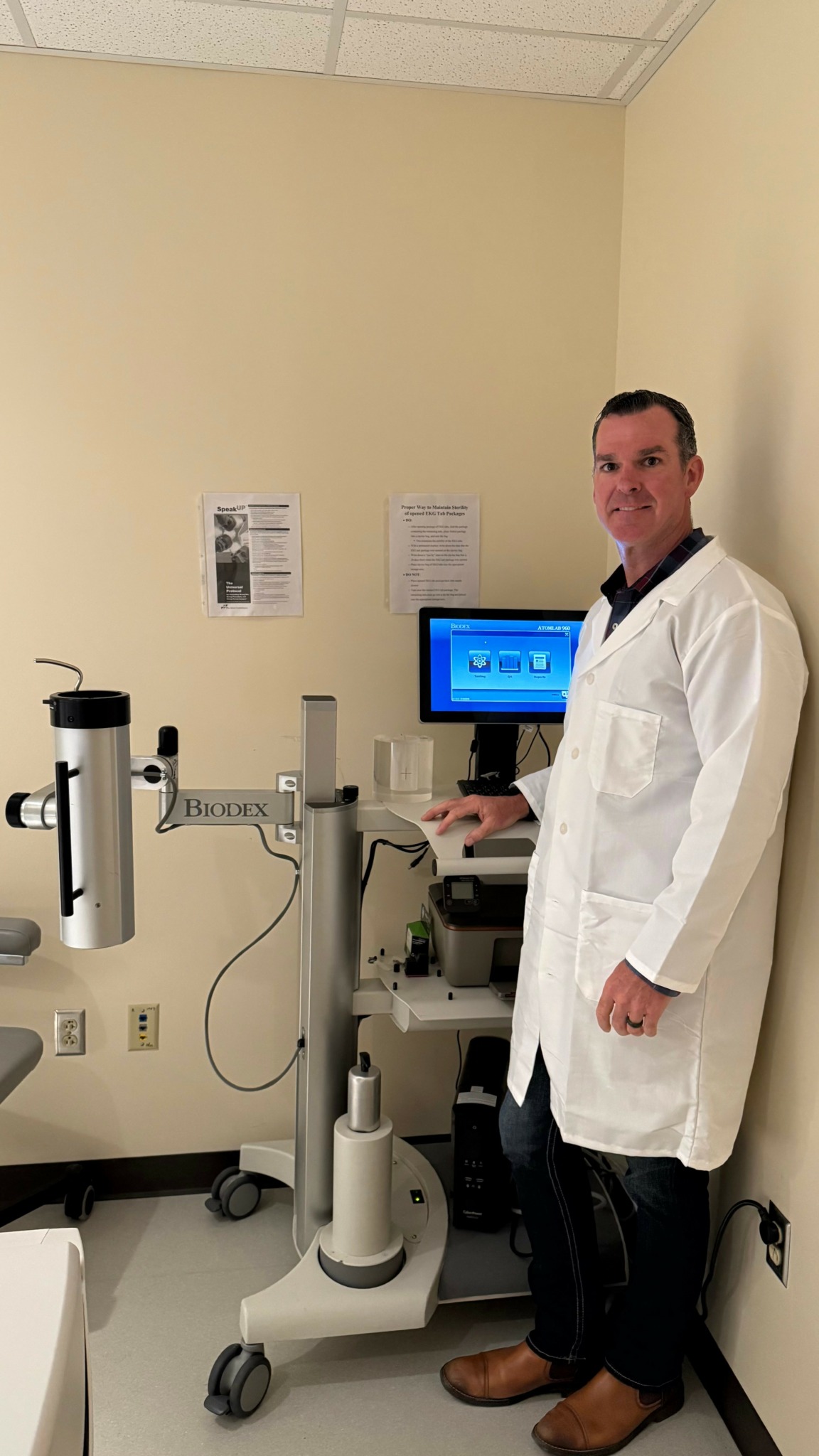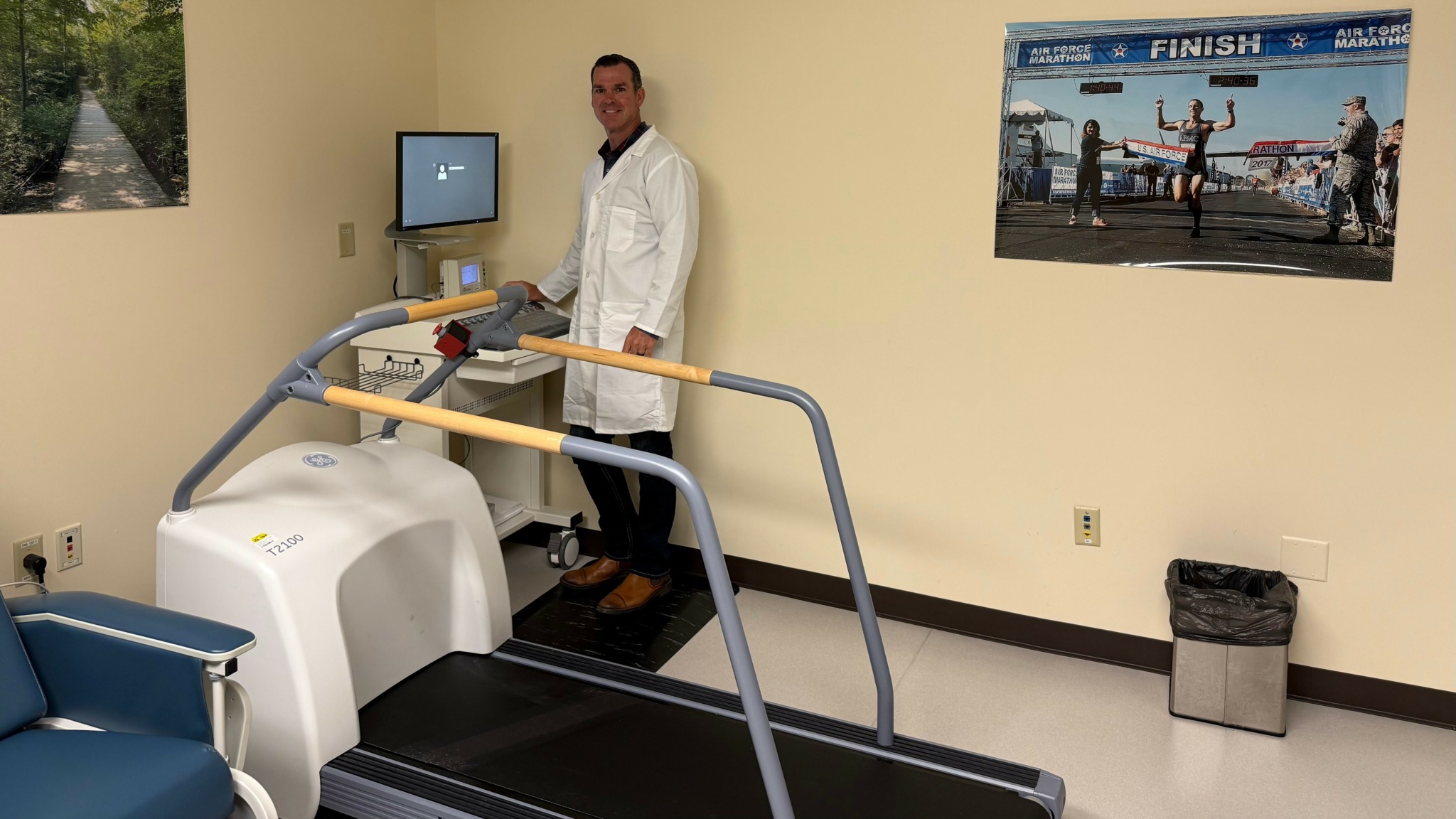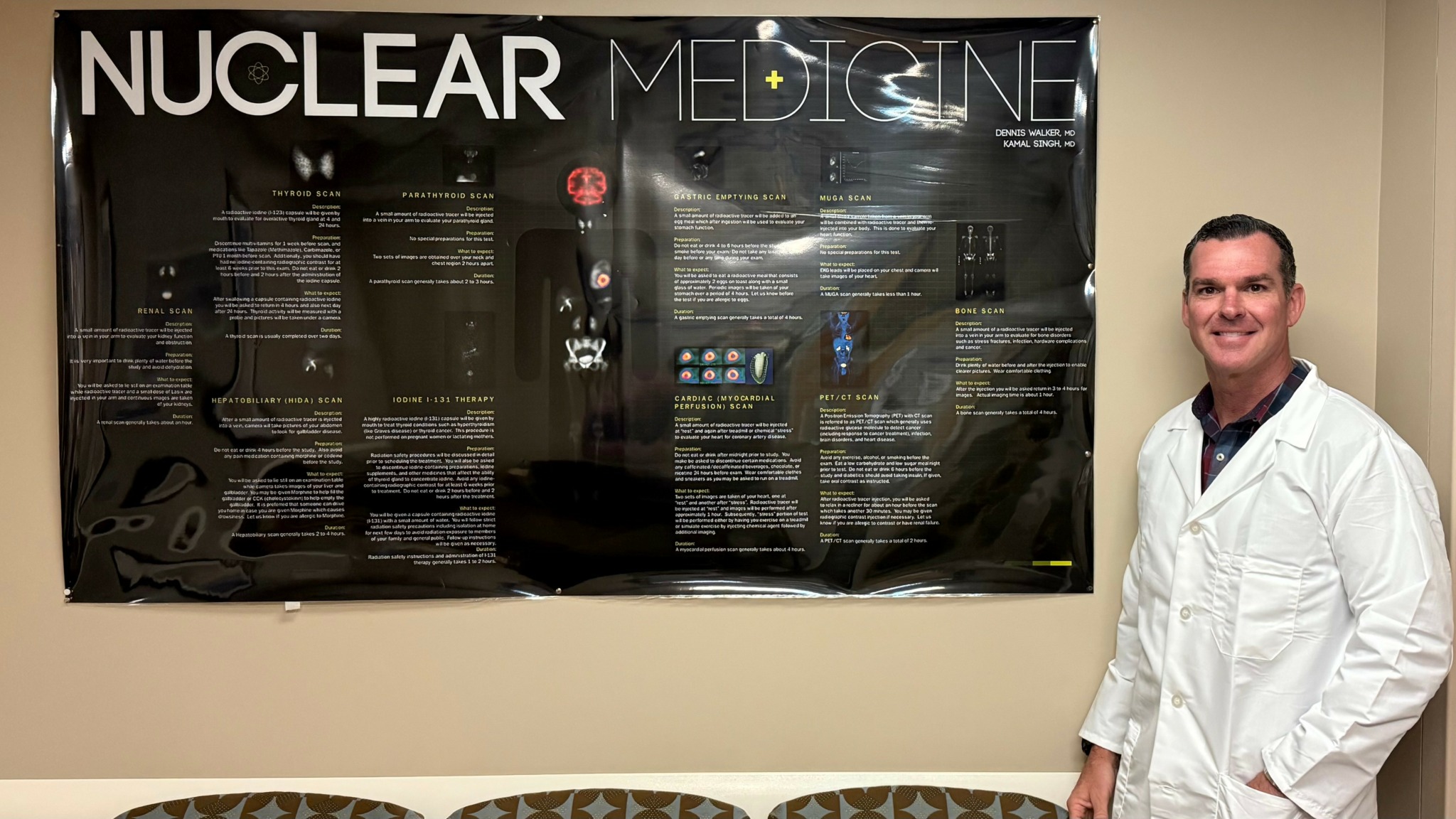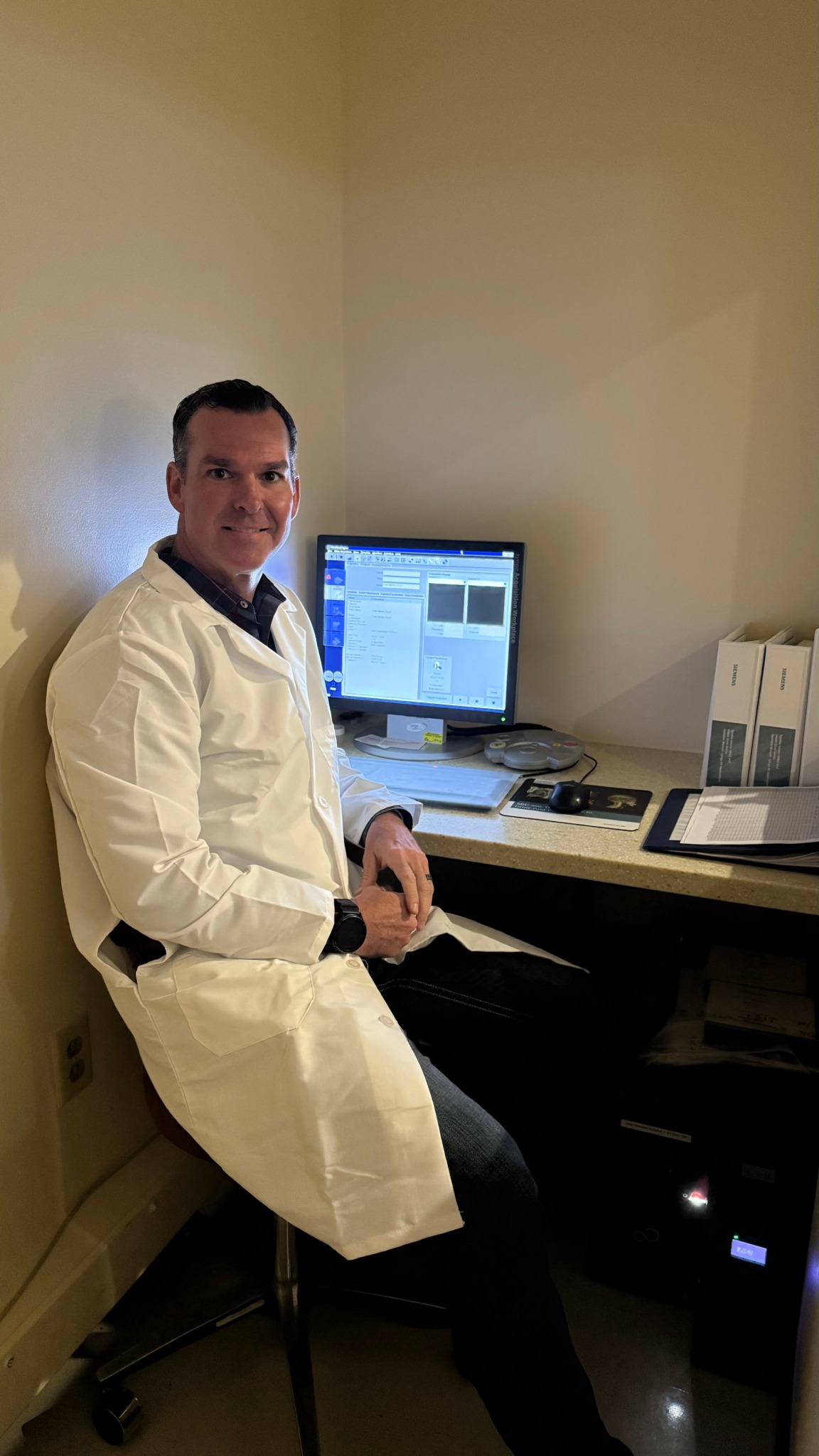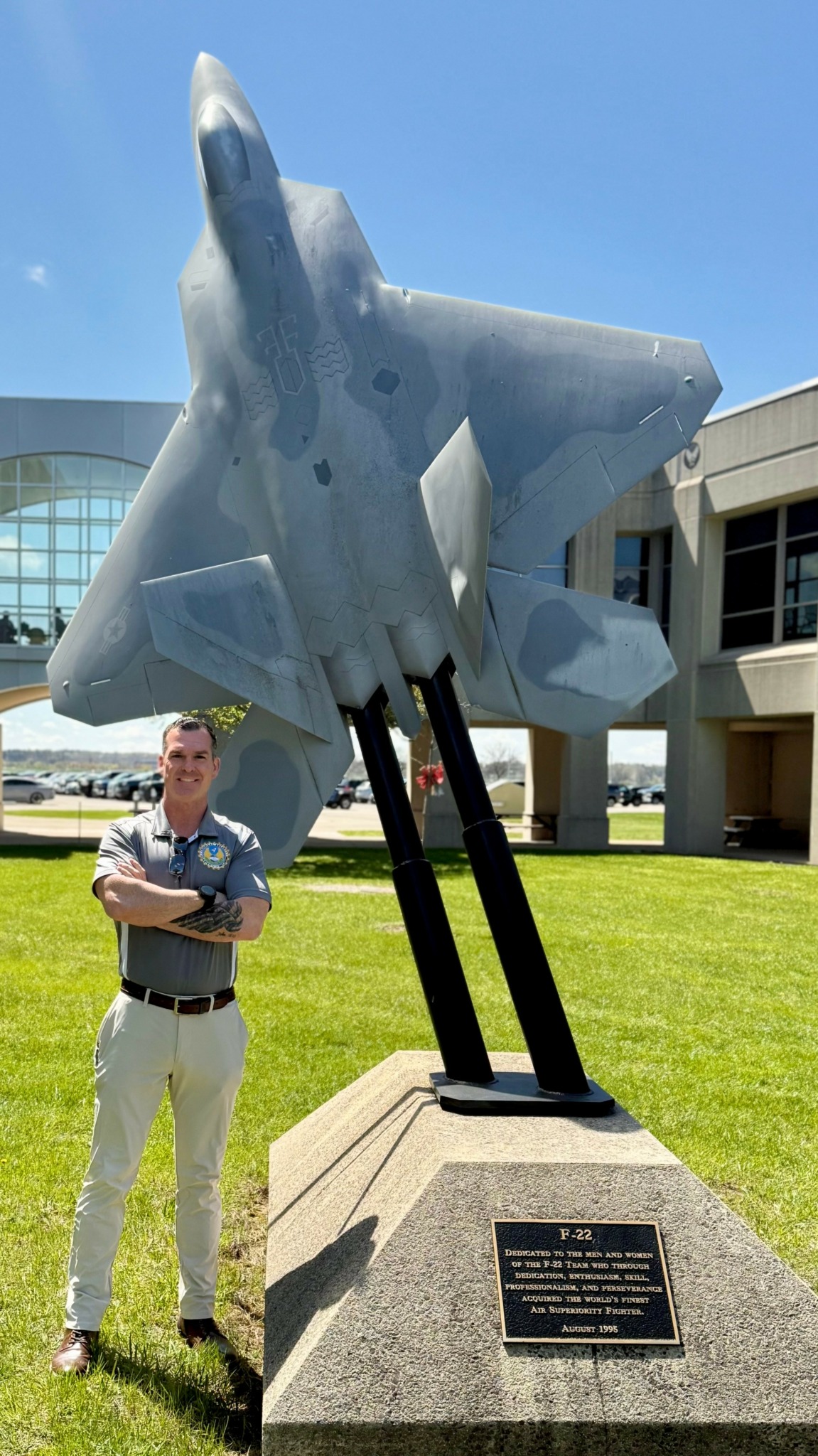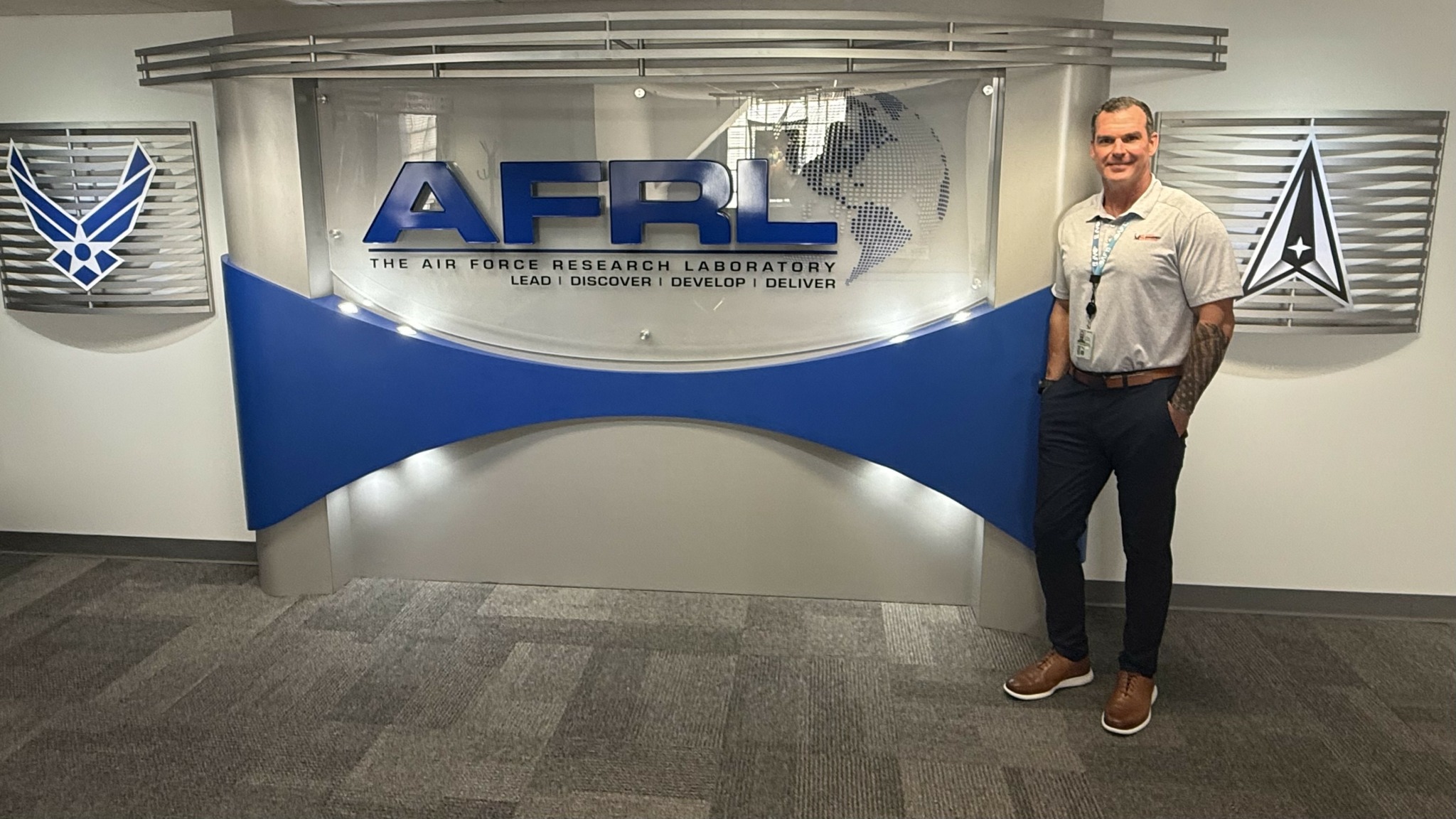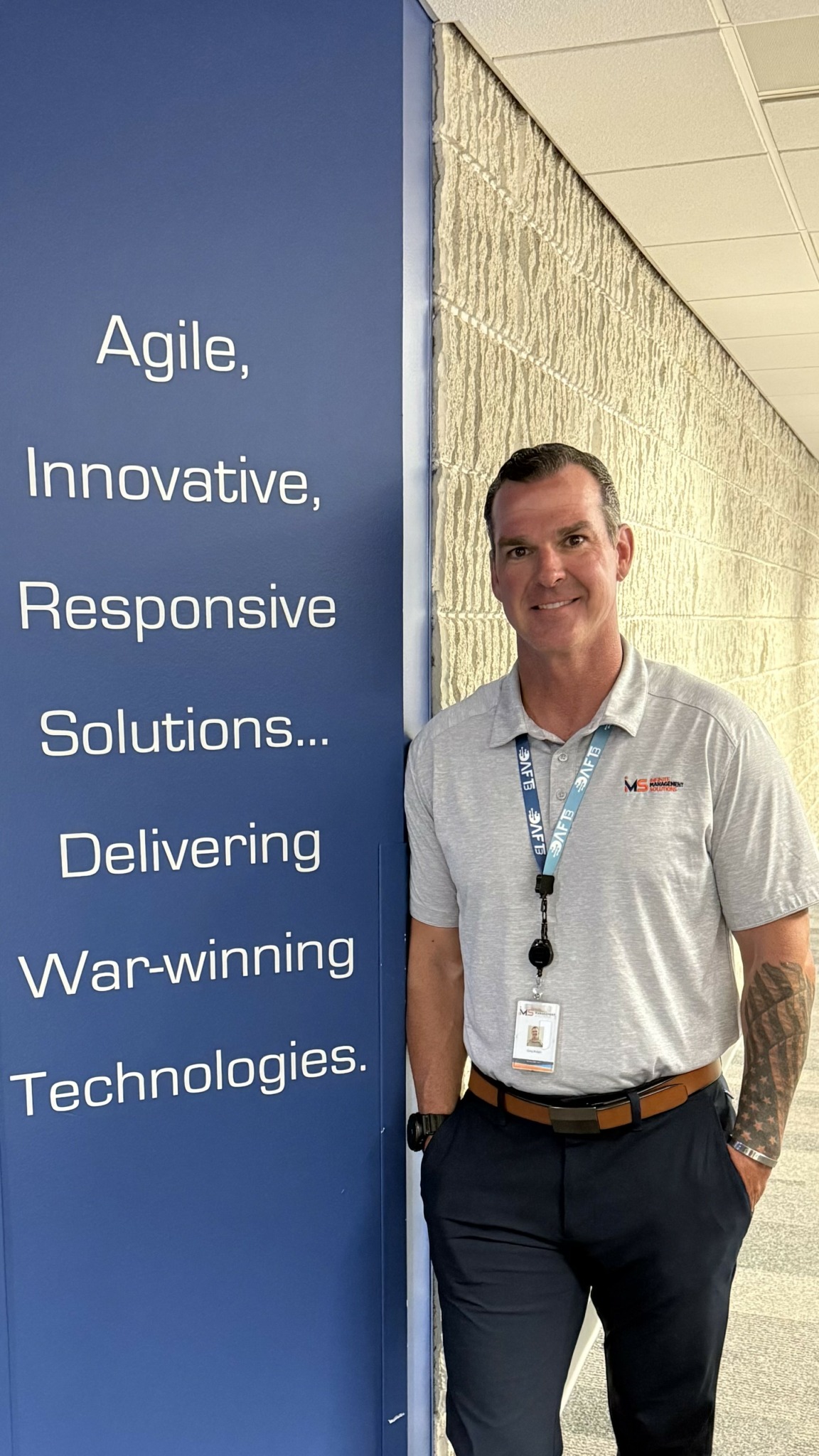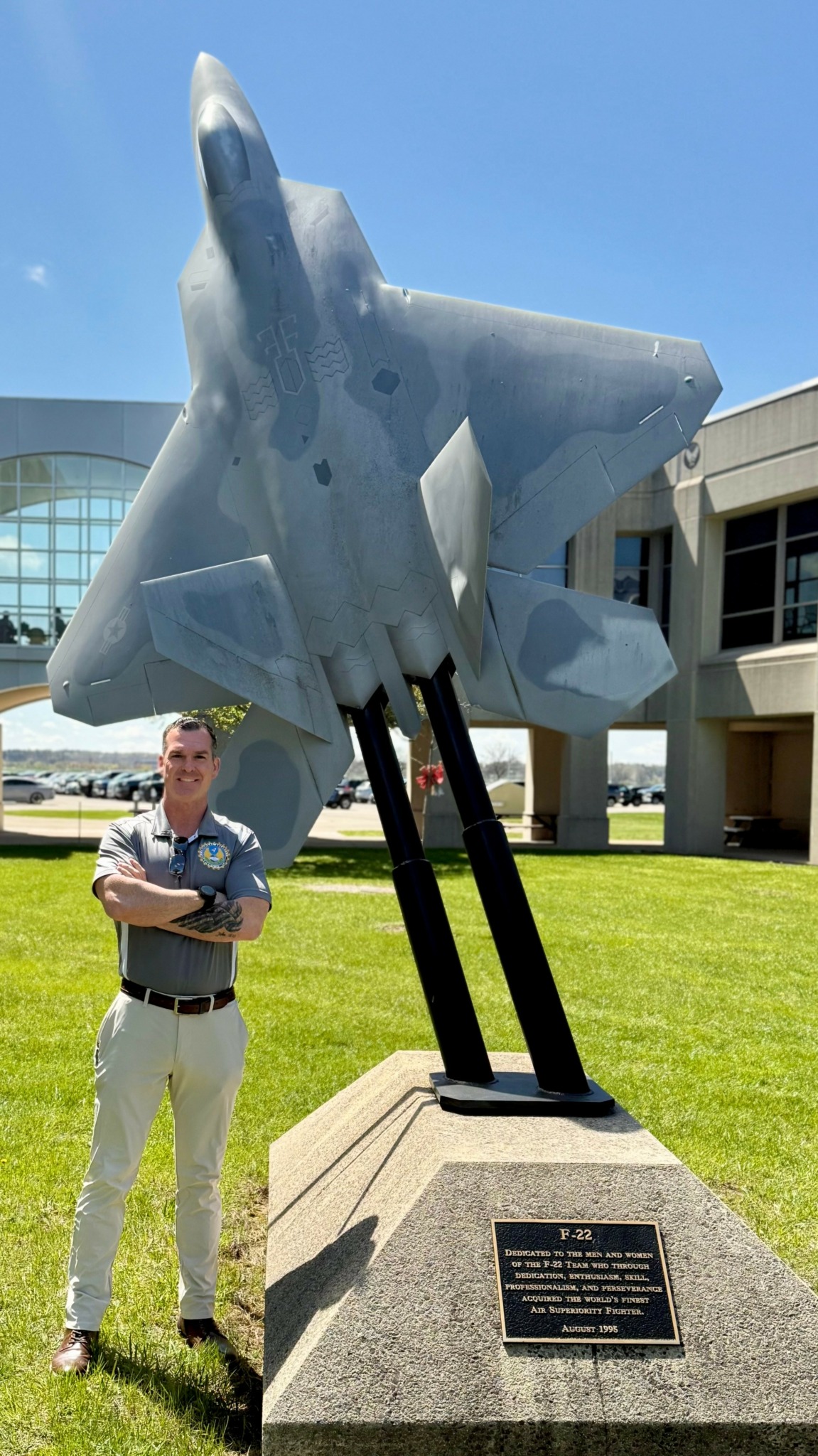We’re excited to introduce you to the always interesting and insightful Greg Bulgin. We hope you’ll enjoy our conversation with Greg below.
Greg, thanks for taking the time to share your stories with us today. How you first get into your field – what was your first job in this field?
For 20 years, I served in the Air Force as a Nuclear Medicine Technologist, preparing radioactive tracers and using molecular imaging to study organ functions. It
was precise, hands-on work—every scan mattered for a patient’s care. But as retirement neared in 2022, I craved more than a new job. I wanted a completely different career. Foreign policy and international affairs sparked my curiosity, especially the role of a foreign disclosure officer. It felt like a chance to take my military experience and contribute on a global stage.
Making that leap wasn’t easy. After two decades in a role I could do with my eyes closed, I had doubts. Could I really start over in a field so unfamiliar? The Air Force
SkillBridge Program became my lifeline—a way to bridge military and civilian life with training and experience. In March 2022, I applied and was accepted into a program at the Air Force Institute of Technology, running from March to September. Those six months were grueling. I dove into security protocols, international agreements, and the ins and outs of information sharing. The concepts were dense, and the stakes felt worlds apart from my hospital days. Some days, I second-guessed myself, especially while juggling coursework and the weight of leaving active duty behind. But the idea of working on global security issues kept me pushing forward.
Wrestling with those new ideas showed me the real hurdle wasn’t just learning—it was thinking differently. My old job was straightforward: mix a tracer, run a scan, help a patient, see the result. Foreign disclosure was abstract, all about policies, approvals, and long-term impact. I had to shift from operating in the moment to thinking strategically. There were times I felt out of my depth, trailing behind others who seemed to speak the language of policy fluently. But the program gave me a roadmap, and I leaned on instructors and peers to fill in the blanks.
By September, the fog started to clear. I got a better grip on the role and saw how my Air Force skills—discipline, attention to detail—were a perfect match. At the end of the program, I landed a job as a foreign disclosure officer with the Secretary of the Air Force’s International Affairs and Foreign Policy Division, helping ensure secure technology transfers for the Military Weapons and Technology Transfer Branch. The journey wasn’t smooth, but it was mine. The doubts and late nights paid off, and I stepped into a career that felt like a new way to serve a cause greater than myself.
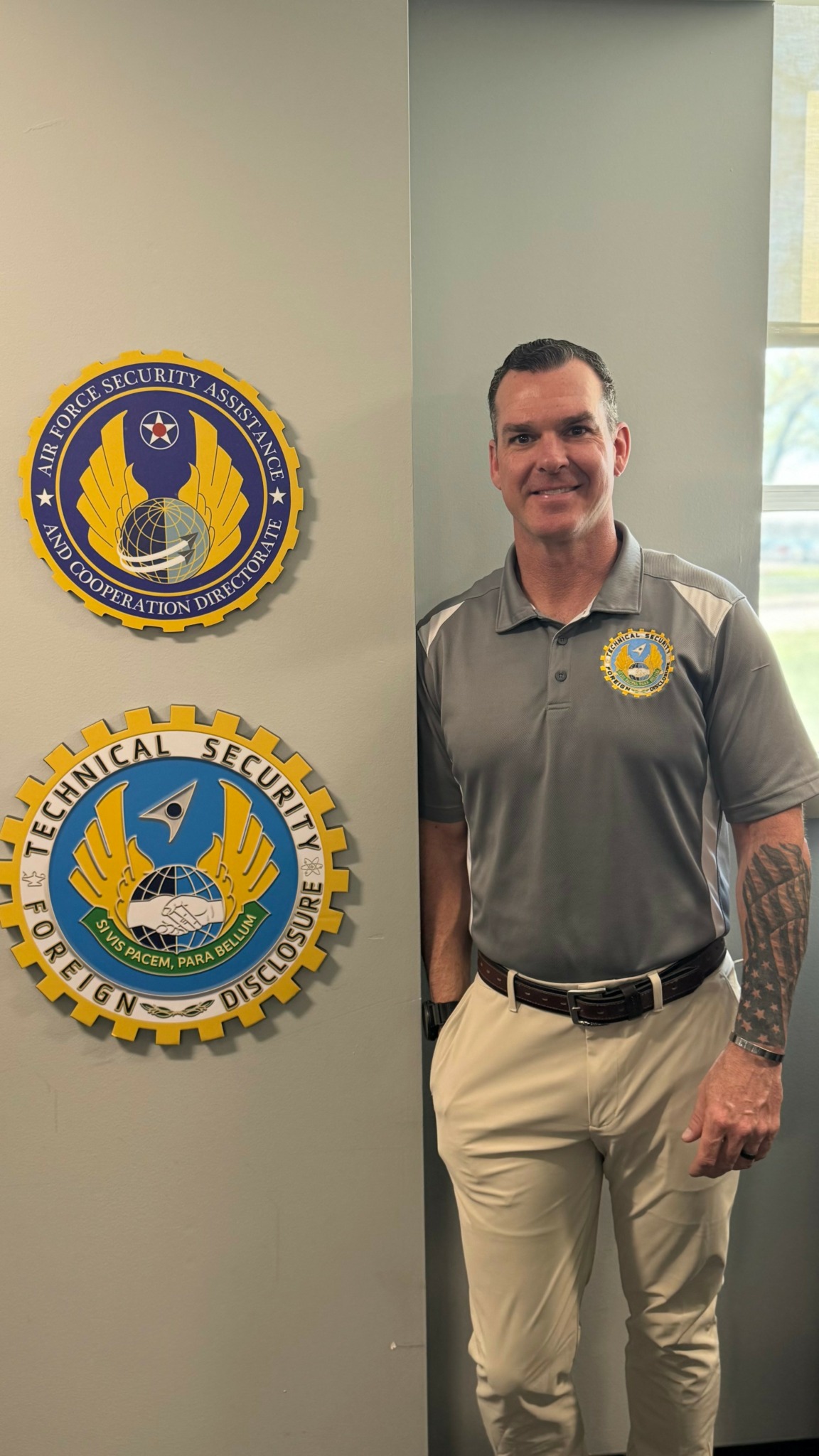
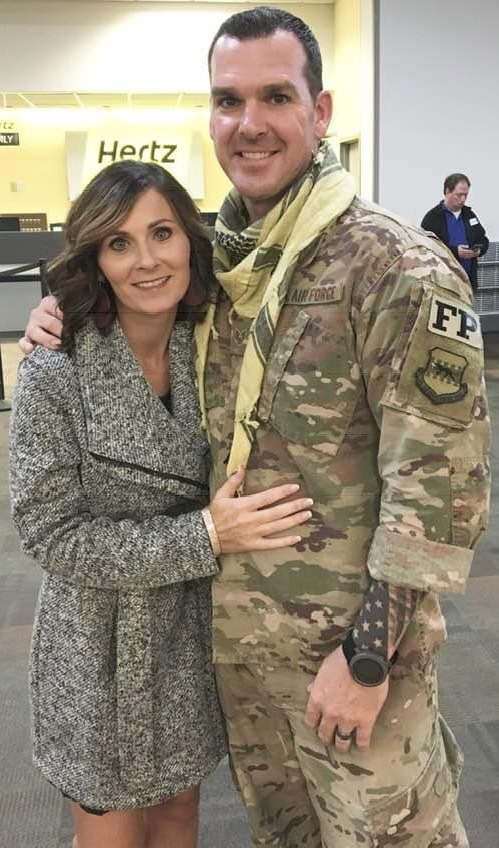
Awesome – so before we get into the rest of our questions, can you briefly introduce yourself to our readers.
I’m a retired Air Force veteran who served for 20 years as a Nuclear Medicine Technologist before making a bold career pivot into foreign policy and international affairs, specifically as a foreign disclosure officer. My journey reflects a blend of discipline, adaptability, and a commitment to serving a greater cause—first through patient care and now through global security. Let me walk you through how I got here, what I do, and what drives me.
For two decades in the Air Force, I worked as a Nuclear Medicine Technologist, preparing radioactive tracers and using molecular imaging to study organ functions. It was precise, hands-on work where every scan directly impacted a patient’s diagnosis and care. I thrived in that high-stakes environment, mastering the technical and interpersonal skills needed to deliver results under pressure. But as retirement loomed in 2022, I felt a pull toward something new. I didn’t just want a job; I wanted a career that would challenge me and align with my curiosity about global issues. Foreign policy, particularly the role of a foreign disclosure officer, caught my attention. It offered a chance to use my military experience in a broader, strategic context—contributing to national and international security.
Making that leap was daunting. After 20 years in a role I could do instinctively, starting over in a field so different felt like stepping into the unknown. I had doubts about whether I could master the complex world of security protocols and international agreements. That’s where the Air Force SkillBridge Program became a game-changer. From March to September 2022, I trained at the Air Force Institute of Technology, immersing myself in the principles of foreign disclosure, information sharing, and global security. It was intense—some days, I felt out of my depth, grappling with abstract concepts far removed from the tangible outcomes of my hospital work. But the program gave me a roadmap, and with the support of instructors and peers, I pushed through.
The biggest hurdle wasn’t just learning new material; it was learning to think strategically. My old role was immediate and concrete: mix a tracer, run a scan, help a patient. Foreign disclosure required analyzing long-term impacts, navigating policies, and balancing national interests. By the end of the program, I’d not only gained the skills but also the confidence to see how my Air Force-honed strengths—attention to detail, discipline, and a mission-driven mindset—fit this new world. I landed a role as a foreign disclosure officer with the Secretary of the Air Force’s International Affairs and Foreign Policy Division, specifically in the Military Weapons and Technology Transfer Branch, where I now help ensure secure technology transfers.
As a foreign disclosure officer, I work at the intersection of national security, international relations, and military technology. My primary role is to facilitate the secure sharing of sensitive information and technologies with allied nations while protecting U.S. interests. This involves reviewing and approving disclosures, ensuring compliance with international agreements, and navigating complex security protocols. I solve problems like:
Balancing openness with security: Enabling collaboration with allies without compromising classified information or technologies.
Streamlining technology transfers: Ensuring military advancements reach trusted partners efficiently while adhering to strict regulations.
Mitigating risks: Anticipating and addressing potential vulnerabilities in information sharing that could impact national security.
My work supports global partnerships and strengthens collective defense, all while safeguarding U.S. capabilities. It’s a role that demands precision, strategic thinking, and an understanding of both technical and diplomatic nuances.
What makes my approach unique is my unconventional path. I bring a rare combination of:
Military precision and discipline: Two decades in the Air Force ingrained a meticulous attention to detail and a commitment to mission success.
Technical expertise: My background in nuclear medicine gives me a grounded understanding of complex systems, which translates to analyzing technology transfers.
Adaptability and resilience: Transitioning from a medical role to foreign policy required me to embrace uncertainty, learn quickly, and reframe my thinking—skills I now apply daily.
A beginner’s humility with a veteran’s confidence: I approach challenges with the eagerness to learn but also the assurance that comes from years of high-stakes work.
I also carry a deep sense of purpose. Whether I was helping a patient get a diagnosis or now enabling secure global partnerships, my work has always been about contributing to something bigger than myself.
I’m proudest of my courage to start over. Leaving a 20-year career where I was an expert to dive into an unfamiliar field took grit, especially when self-doubt crept in. Completing the SkillBridge Program and landing my current role showed me that reinvention is possible at any stage. I’m also proud of the impact I’m making now—knowing that my work helps strengthen international alliances and protect national security feels like a new way to serve.
For potential collaborators, employers, or those curious about my journey, here’s what I’d like you to take away:
I’m driven by purpose: Whether in healthcare or foreign policy, I’m motivated by work that makes a difference.
I’m a lifelong learner: My career pivot proves I’m not afraid to tackle new challenges and master complex domains.
I bridge worlds: My blend of technical, military, and policy experience allows me to connect dots others might miss.
If you’re considering a career change, my advice is:
Embrace the discomfort: Feeling out of your depth is part of growth. Lean on mentors and peers to navigate it.
Leverage your past: Skills like discipline and problem-solving are transferable, even if the context changes.
Focus on the why: A clear sense of purpose will carry you through the tough days.
My journey is proof that it’s never too late to chase a new calling.
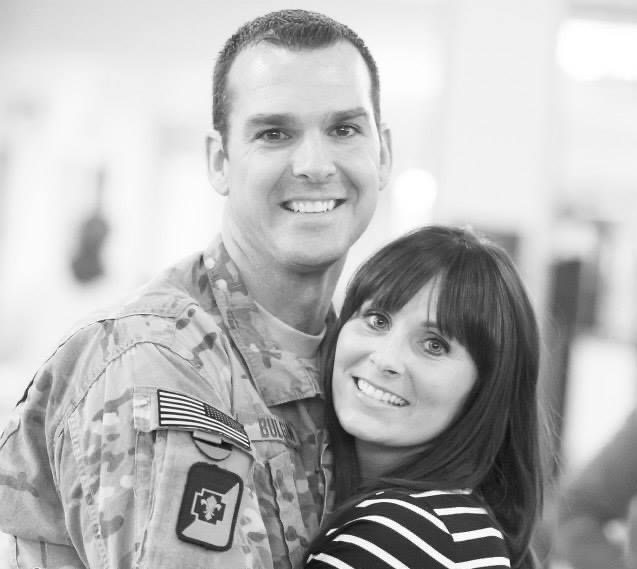
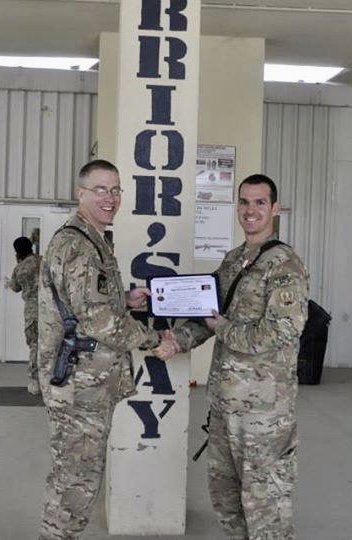
Can you share a story from your journey that illustrates your resilience?
Halfway through my SkillBridge Program at the Air Force Institute of Technology in 2022, I encountered a challenging moment. After spending 20 years as a Nuclear Medicine Technologist in the Air Force— preparing radioactive tracers and imaging organs to diagnose conditions —I was now studying foreign policy and learning about security protocols and international agreements. One week, we had to analyze a practice case involving technology sharing with an ally. It was filled with rules and terms I didn’t fully understand, and my first attempt at answering was way off the mark.
I began to doubt myself. I aspired to be a foreign disclosure officer, but that day, I was uncertain. My classmates, some of whom had policy experience, seemed to grasp the material easily, while I spent late nights poring over my notes. It felt like a lot was at stake—not just the program but also proving that I could successfully transition to a new career after 20 years in a different field.
Despite my doubts, I didn’t give up. Asking my instructor for help was difficult—I wasn’t accustomed to needing assistance after my years in the Air Force. He guided me to identify what I had missed and advised me to break down the analysis in the same way I used to with medical scans. I dedicated a few nights to refining my work, carefully reviewing the rules as I would have checked a tracer dose. By the next class, my revised analysis received such high praise that it was used as a framework example for future classes when teaching about International Traffic in Arms Regulations compliance.
This experience taught me that resilience means persevering, even in moments of uncertainty. It’s about seeking help and applying what you already know. My Air Force discipline helped me navigate this challenge, and that moment reinforced my belief that I could succeed in my new career.
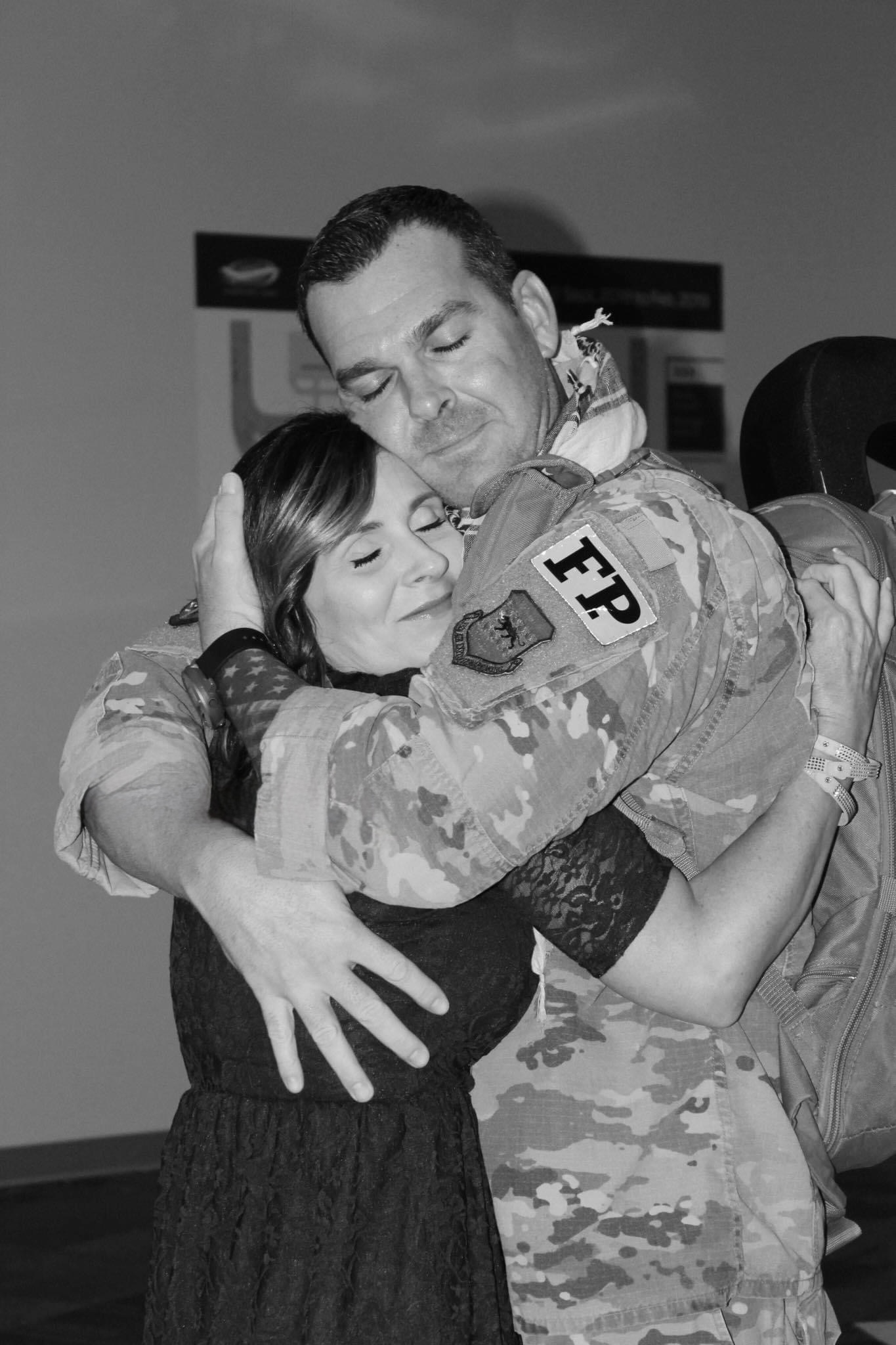
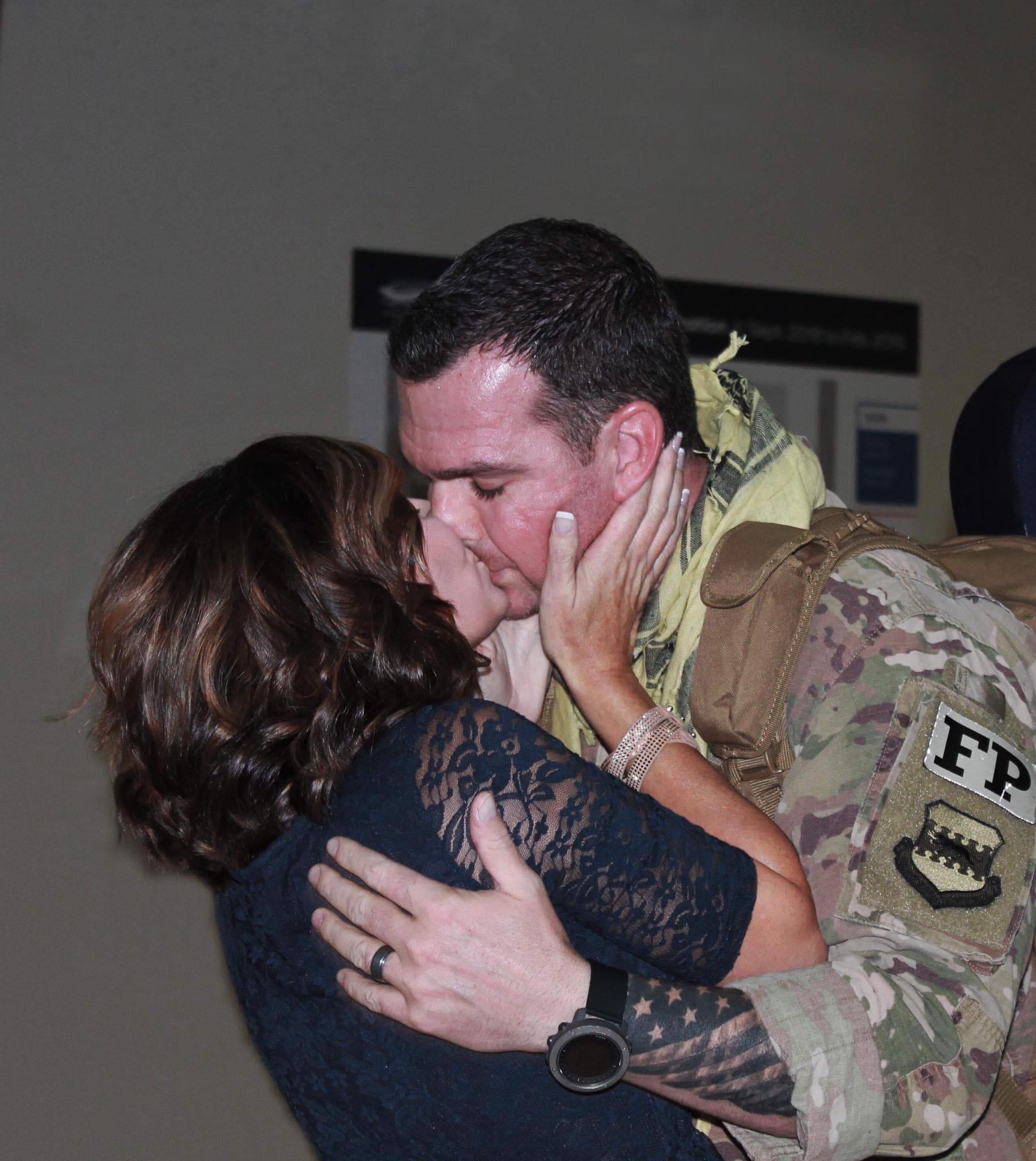
Other than training/knowledge, what do you think is most helpful for succeeding in your field?
Beyond training and knowledge, I believe adaptability is essential for success as a foreign disclosure officer. My job involves navigating complex policies and
international agreements to ensure secure technology transfers, and no amount of study can prepare you for every situation. Each case presents its own unique
challenges—different allies, technologies, and regulations—requiring quick adjustments while keeping the big picture in mind. After spending 20 years as a Nuclear Medicine Technologist, where tasks like running scans were straightforward, I faced a steep learning curve during my 2022 SkillBridge Program. I was used to concrete outcomes, but foreign disclosure forced me to think strategically, often with incomplete information. At first, this shift was difficult, but by embracing adaptability—being open to feedback, rethinking my approach, and staying calm under pressure—I was able to grow. For example, when I struggled with a practice analysis, instead of getting discouraged, I sought help, revised my work, and ultimately created a solution that served as a teaching example for others. Adaptability is more than just flexibility; it’s about trusting yourself to find solutions. In a field where decisions affect global security, being able to pivot and stay grounded turns knowledge into action. This vital lesson from my Air Force days continues to guide me in my new career.
